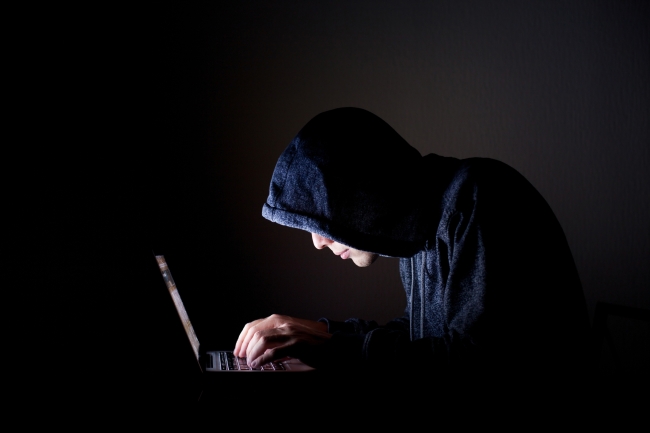You have /5 articles left.
Sign up for a free account or log in.

iStock
Spooked by horror stories of an online cheating plague, how should university faculty members and administrators respond? Should they launch a virtual anti-cheating crusade, armed with high-tech surveillance, ending in disciplinary terror -- retribution, chastisement, and sanctions, marked by failing grades and expulsions? Or should they just throw up their hands in defeat, treating it as a chronic academic illness, no worse in our lecture halls and online than the lack of integrity found outside the campus gates, equally under siege by marriage infidelities, corporate malfeasance, and irresponsible politicians playing fast and loose with “alternative facts”?
Even though cheating is relatively common on campus—between 50-60 percent of U.S. college students say they cheated at least once -- one of the first suspicions raised by those skeptical of virtual education is: Isn’t there more cheating online than in face-to-face instruction?
Without any data to back them up, most doubters quickly conclude that virtual dishonesty is endemic, far worse online than in traditional classrooms. But the paradoxical truth is that a handful of studies unexpectedly report that there is less of it happening online than on campus; with some saying there is no significant difference between the two. (I was astonished myself when I discovered these surprising results while researching this article.)
Looking for blame, we tend to accuse students of being more untrustworthy now than ever, or we denounce the wider society as more corrupt, the source of moral decline. But my guess is that students -- online or face-to-face -- are no more unethical now than they once were, nor is society more depraved today than in earlier times. History has a way of uncovering far worse behavior -- say, in the Victorian period -- than in our own. The fact is, despite our belief that our permissive age gives students more license to transgress than ever, over a number of years, the rate of academic dishonesty has stayed pretty much the same.
In a cascade of studies, serious scholars have tried to unearth what’s out of shape in student psychology or in our collective environment that moves students to cheat. Some identify deep ethical lapses; others point to more common causes -- peer and parental pressure, grade anxiety, competition, resentment of authority, feelings of unfairness, and so on. While conventional wisdom seems to agree with the literature -- that there are psychological and social reasons why students cheat -- nonetheless, we might do better to turn our attention in the other direction. Rather than investigate student behavior, it may be far more illuminating to see what faculty members are doing.
To my mind, cheating is more a consequence of conventional classroom instruction, an exhausted pedagogy that has long since outlived its effectiveness. Most of the nation’s colleges and universities are still stuck in a century-old, faculty-centered style, forcing students to parrot their teachers in midterms and final exams, as if mass memorization is the object of education. Radical Brazilian education innovator Paolo Friere long-ago ridiculed traditional teaching for its “banking concept of education,” with students dutifully memorizing content, turning them into instructional depositories.
Instead of subjecting students to a pair of menacing tests each semester -- midterms and finals -- research has shown that instructors can seriously reduce test-taking anxiety by administering low-stakes quizzes, distributed frequently throughout the term. With low-stakes quizzes, rather than high-stakes summative exams, students reveal the cumulative results of learning over time, rather than inflated outcomes drawn from all-nighters.
Like an intravenous feed, rather than the stab of an injection, the mind absorbs lessons drip-by-drip, not in a single shot. With frequent, relaxed tests, facts and ideas are more likely to be retained long after grades are posted, while binge studying for high-stakes exams can easily evaporate on the last day of class.
In learning theory, 19th-century German psychologist Hermann Ebbinghaus first noticed that when learning is divided into a number of short sessions over a long time, rather than in one long session, in a phenomenon known as spacing practice, results are commonly more effective than intense study. Massed practice, consisting of fewer, longer sessions, often ends in poorer outcomes. In one study reporting on the value of low-stakes quizzes, students who took a series quizzes during the semester performed significantly better than those who didn’t. Since not much rides on a chain of low-stakes quizzes -- especially when they are not counted as central to your grade -- there’s no reason to scribble answers on the inside of water-bottle labels or mark your forearm with your ball-point, an academic tattoo hidden under your long-sleeved shirt. Why cheat, if there’s so little at stake?
To reduce test-taking anxiety even more, prudent instructors divide instruction into small chunks. With this approach, online students are graded on a long series of tasks -- homework assignments, message-board participation, virtual exercises, teamwork roles, and low-stakes quizzes, among other things with no single element dominating any other, reflecting student performance, not in one or two make-or-break summative exams.
With one click, virtual instructors can easily distribute frequent quizzes. They can also quickly update and change exam questions, preventing students from posting questions and answers online. Most learning management systems give faculty the ability to randomize test questions so that no two students receive exactly the same exam. Tech companies like Proctor U and Tegrity offer remote proctoring, with company staff monitoring test-takers with screen-sharing and webcam feeds. Recently, new keystroke biometric software measures the uniqueness of student keyboard typing, a white-hat hacker’s sci-fi dream.
On campus, primitive surveillance -- no cameras, just human vision — is the most common and relatively porous cheating-prevention tactic. The bored and uncertain gaze of faculty or graduate students is the university’s principal permeable defense. In large lecture halls, rarely, if ever, does anyone ask students to display their identity cards, allowing anyone to slip into your place. Online, you can’t take your virtual exam without showing your driver’s license or student card to your virtual proctor.
No strategy -- however seemingly foolproof -- is safe from inventive students or commercial interlopers from gaming the system. Some of the ways students devise to do an end-run around online exams are so ingenious that their brilliance would have been better spent actually studying and taking the exam -- and very likely acing it.








